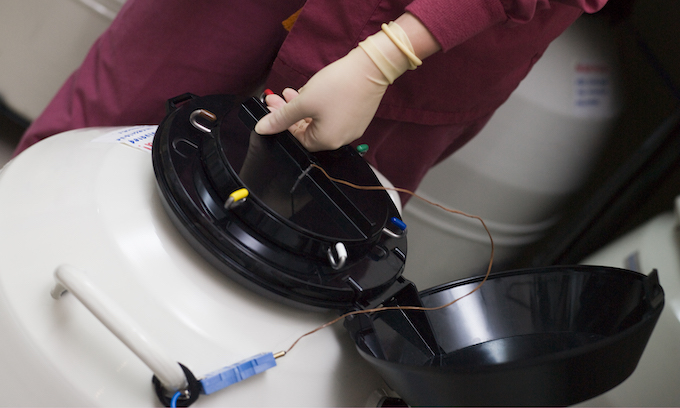Newborn twins, born in Oregon three weeks ago, were produced from what are believed to be the longest-frozen embryos ever.
The embryos, which produced twins Lydia and Timothy Ridgeway on Halloween, were frozen 30 years ago on April 22, 1992.
“This is a new record for the transfer of the longest-frozen embryo resulting in a birth,” said Mark Mellinger, marketing and development director at the National Embryo Donation Center. The previous records were also set over the last five years by the NEDC, with a 24-year-old embryo and a 27-year-old embryo.
The embryos, which produced Lydia and Timothy, spent nearly 30 years in liquid nitrogen after the babies’ biological mother was presumably implanted with their siblings. The embryos were donated in 1992, frozen and then thawed earlier this year.
The twins’ parents, Philip and Rachel Ridgeway, have four other children and “specifically requested the embryos that have been waiting for the longest. They actually felt called to specifically say we want the embryos that everyone else has taken a pass on,” Dr. John David Gordon, medical director at NEDC, told WATE.
There are between 1.5 million and 3 million frozen embryos that wait to be thawed and transferred around the country, according to Gordon, who said some embryos are put up for adoption and some are never used.
The babies’ parents have reflected on the date their children’s embryos were frozen, as Philip Ridgeway said he “was 5 years old when God gave life to these embryos.”
“In a sense, they’re our oldest children, even though they’re our smallest children,” Ridgeway added. The couple have four other children, ages 8,6,3, and almost 2. None of their other children were conceived via in vitro fertilization or donors.
“We wanted to be able to go in and find embryos that had been overlooked for reasons beyond their control that have been waiting so long for a mom and a dad,” said Rachel Ridgeway, who was just 3 when her babies were conceived.
“It’s pretty amazing just knowing that they were created then, and have waited that long for us to be able to parent them.”
Copyright 2022 United Press International, Inc. (UPI). Any reproduction, republication, redistribution and/or modification of any UPI content is expressly prohibited without UPI’s prior written consent.
Places
—-
This content is published through a licensing agreement with Acquire Media using its NewsEdge technology.



















I wonder, who the ‘daddy’ was? AND will they go after him now, for child support?